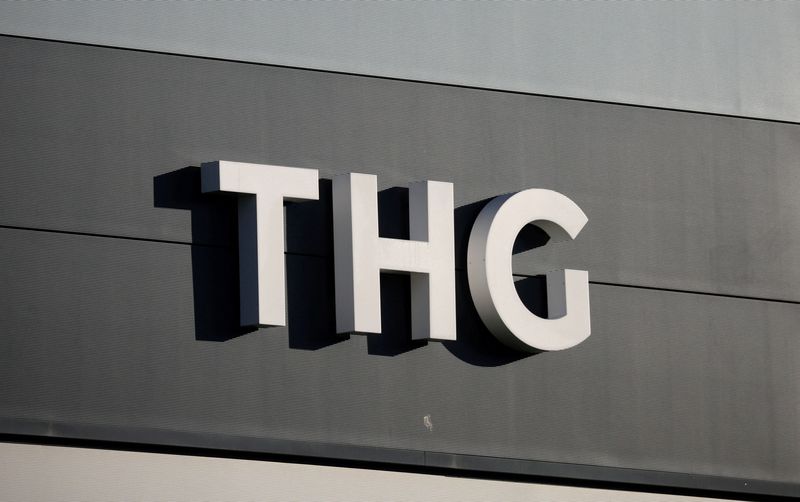UK’s THG shares dive 20% as another suitor bites the dust
2023.05.12 03:47

© Reuters. FILE PHOTO: Signage is seen on a THG warehouse building in Manchester, Britain, January 18, 2022. REUTERS/Phil Noble
By Yadarisa Shabong
(Reuters) -British online retail platform THG Plc ended talks with Apollo Global Management (NYSE:) on Friday, saying there was “no merit” in further discussions after it rejected the private equity firm’s buyout proposal based on “inadequate valuations”.
Apollo, in a separate statement, said it no longer planned to make an offer for the British company, which owns beauty and nutrition e-commerce sites as well as an online platform serving third-party brands.
After a bumper $7 billion London IPO in 2020, THG has had several setbacks including profit warnings that have weighed heavily on its shares and led to several takeover approaches, all of which have been rejected either publicly or privately.
Shares in the company, which have lost 85% of their value since the initial public offering (IPO), tumbled 20% in early deals.
Rejecting Apollo’s proposal was on a basis “consistent with all previous offers” that were spurned because of “inadequate valuations and the nature of those offer structures”, THG said.
Apollo had approached THG last month with a preliminary buyout proposal, but terms were not disclosed.
Apollo had until May 15 under UK takeover rules to make a firm offer or walk away, but THG said it was not in its best interests to seek an extension to that deadline.
The British company also said the timing of its move to a premium listing in London would depend on the outcome of the financial regulator’s review for listing reform.
In 2021, THG decided to select an independent chair to align itself to British corporate governance rules before a proposed premium listing on the London Stock Exchange.
Britain’s stock market rules are set to be radically simplified in an effort to help lure major company listings back to London under plans unveiled by the financial watchdog earlier this month.
It also suggested replacing Britain’s existing ‘premium’ and ‘standard’ listing segments with a single category.








